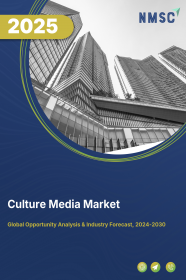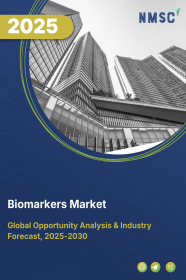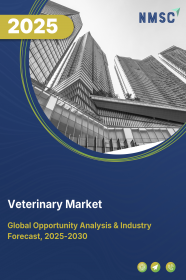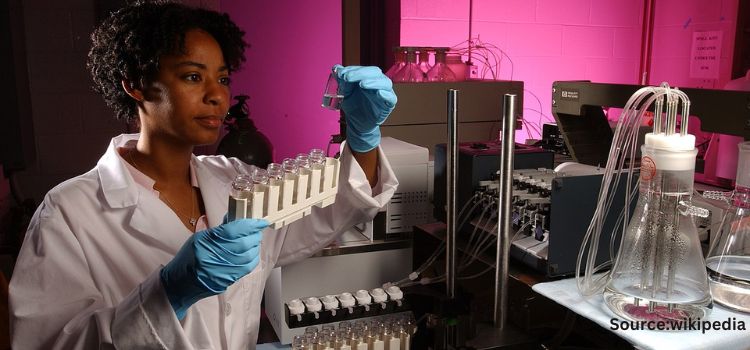
Culture Media Market by Type (Lysogeny Broth, Chemically Defined Media, Classical Media, Serum-free Media, Specialty Media, Stem Cell Media, Custom Media Formulation, and Others), by Application (Cancer Research, Biopharmaceuticals, Regenerative Medicine & Tissue Engineering, Stem Cell Technologies, Drug Discovery, and Others), by Research Type (Cytogenetics, Cell Therapy, and Others), and by Others – Global Opportunity Analysis and Industry Forecast 2024-2030
US Tariff Impact on Culture Media Market
Trump Tariffs Are Reshaping Global Business
Market Definition
The global Culture Media Market size was valued at USD 5.46 billion in 2023 and is predicted to reach USD 12.79 billion by 2030 with a CAGR of 13.0% from 2024-2030. Culture media are specialized substances or formulations used in laboratory and biotechnology settings to create a controlled and nourishing environment for the growth and propagation of microorganisms, cells, or tissues for various research, diagnostic, and biopharmaceutical purposes.
The primary objective of culture media is to help with the regulated cultivation and study of a variety of biological entities, enabling the identification of pathogens, the creation of vaccines and biopharmaceuticals, as well as the advancement of scientific knowledge in areas such as microbiology, genetics, and medicine. Researchers can precisely simulate and investigate biological processes using culture media as it can replicate the natural habitat of microorganisms or cells.
Market Dynamics and Trends
The culture media market is driven by the rapid developments in stem cell research, biopharmaceuticals, and oncology. Recent developments in stem cell therapies have shown promising results in regenerative medicine and disease treatment, offering potential benefits to patients. These advancements hold the potential to revolutionize healthcare by providing new avenues for addressing various medical conditions. Therefore, the increased global demand for stem cell culture media and related products is driving the growth of the culture media market.
Moreover, the increasing adoption of hydroponics, driven by its benefits such as efficient resource utilization, controlled environments, and year-round cultivation, necessitates the development and use of culture media to support plant growth. According to the Defense Research and Development Organization, as of June 2023, the expanding hydroponics sector focused on providing precise nutrients for plant growth within controlled environments, is poised to achieve a market value of USD 12 billion by 2025. This growth is significantly driving the demand for culture media used in hydroponics, supporting plant cultivation, and contributing to the overall growth of the culture media market.
However, the high cost of culture media acts as a significant barrier to market entry and expansion, particularly for smaller research facilities and laboratories with limited budgets. This financial constraint is limiting their ability to procure specialized culture media formulations and invest in expensive production processes, thus restraining the growth of the culture media market.
On the other hand, the emergence of innovative culture media for cultivated meat production, including the utilization of conditioned media derived from animal cells, is a pivotal factor driving future opportunities for the culture media market. These advancements are poised to revolutionize the biotechnology industry by providing more efficient and sustainable solutions for cell growth and tissue engineering, ultimately expanding the market share and demand for culture media in various applications.
Market Segmentations and Scope of the Study
The culture media market share is segmented on the basis of type, application, research type, end user, and region. On the basis of type, the market is divided into lysogeny broth, chemically defined media, classical media, serum-free media, specialty media, stem cell media, custom media formulation, and others. On the basis of application, the market is classified into cancer research, biopharmaceuticals, regenerative medicine & tissue engineering, stem cell technologies, drug discovery, and others.
On the basis of research type, the market is categorized into cytogenetics, cell therapy, and others. On the basis of end user, the market is bifurcated into the biotechnology & pharmaceutical industry, academic institutes, research laboratories, and others. Regional breakdown and analysis of each of the aforesaid segments comprises North America, Europe, Asia-Pacific, and Rest of the World (RoW).
Geographical Analysis
North America holds the dominant share of the culture media industry at present and is expected to continue its dominance during the forecast period. This is attributed to the presence of the key market players in the region including Cytiva, and Thermofisher Scientific Inc, that are engaged in various strategies including acquisition boosting the growth of the market. For instance, in October 2022, Cytiva, acquired CEVEC Pharmaceuticals, a cell line development and viral vector manufacturer, in Germany. This strategic acquisition strengthened Cytiva's position in biomanufacturing solutions, driving the growth of the culture media market by offering advanced technologies and services. is driving the demand for culture media.
Additionally, the rising cancer incidence in the U.S. and Canada is fueling demand for culture media market. According to the American Cancer Society, Inc., as of 2021, cancer emerged as a significant public health concern in America, recording approximately 1.9 million new cases and 608,570 deaths in the United States. This surge in cancer cases is boosting the growth of the culture media industry by supporting cancer research and diagnostics.
On the other hand, Europe is expected to show a steady rise in the culture media market as various biomaterials manufacturers employ diverse strategies to meet the growing demand for advanced culture media solutions in biotechnology and pharmaceutical industries. Recently, Saint-Gobain Life Sciences Ireland made a big investment in denovoMATRIX GmbH, a developer and manufacturer of biomimetic coatings. They extended their agreement to work together on products for Stem Cell therapy. Both of the companies strengthen their partnership, especially by using Saint-Gobain's worldwide network and denovoMATRIX's creative products.
Moreover, the growth in research & development activities along with increased pharmaceutical production is driving the growth for the market in the region, as culture media are essential for biotechnology and pharmaceutical advancements. According to the European Industrial Pharmacists Groups., as of September 2022, Switzerland, Germany, and Italy stand as the prominent pharmaceutical production hubs in Europe and the research-based European pharmaceutical industry increased from USD 134.38 billion in 2000 to an impressive USD 316.18 billion in 2021. This substantial growth in pharmaceutical production is leading to increased demand for culture media to facilitate progress in the biotech and pharma sectors.
Competitive Landscape
The culture media market trends comprise key players such as Fujifilm Holdings Corporation, Cytiva, Lonza Group AG, Corning Incorporated., Thermo Fisher Scientific, Inc., Becton Dickinson and Company, GE Healthcare, Caisson Laboratories Inc., Cell Culture Technologies LLC, Sartorius AG, and others. These market players are adopting various strategies such as business expansion and collaboration of businesses across various regions to maintain their dominance in the culture media market.
For instance, in August 2022, Thermo Fisher Scientific expanded its dry powder media manufacturing facility in Grand Island, New York, to meet the increasing demand for culture media products. This move reinforces their dedication to advancing cell culture solutions and supporting the growth of the culture media market.
Also, in January 2022, Cytiva collaborated with Nucleus Biologics, LLC, a cell performance company to accelerate the development of custom cell media. This collaboration aims to provide researchers with tailored cell culture solutions, driving innovation in the culture media market.
Key Benefits
-
The report provides a quantitative analysis and estimations of the culture media market from 2024 to 2030, which assists in identifying the prevailing market opportunities.
-
The study comprises a deep dive analysis of the culture media industry, including the current and future trends to depict prevalent investment pockets in the market.
-
Information related to key drivers, restraints, and opportunities and their impact on the culture media market is provided in the report.
-
A Competitive analysis of the key players, along with their market share is provided in the report.
-
A SWOT analysis and the Porter's Five Forces model is elaborated on in the study.
-
Value chain analysis in the market study provides a clear picture of the stakeholders' roles.
CULTURE MEDIA MARKET KEY SEGMENTS
By Type
-
Lysogeny Broth
-
Chemically Defined Media
-
Classical Media
-
Serum-Free Media
-
Specialty Media
-
Stem Cell Media
-
Custom Media Formulation
-
Others
By Application
-
Cancer Research
-
Biopharmaceuticals
-
Regenerative Medicine & Tissue Engineering
-
Stem Cell Technologies
-
Drug Discovery
-
Others
By Research Type
-
Cytogenetics
-
Cell Therapy
-
Others
By End User
-
Biotechnology & Pharmaceutical Industry
-
Academic Institute
-
Research Laboratory
-
Others
By Region
-
North America
-
The U.S.
-
Canada
-
Mexico
-
-
Europe
-
The UK
-
Germany
-
France
-
Italy
-
Spain
-
Denmark
-
Netherlands
-
Finland
-
Sweden
-
Norway
-
Russia
-
Rest of Europe
-
-
Asia Pacific
-
China
-
Japan
-
India
-
South Korea
-
Australia
-
Indonesia
-
Singapore
-
Taiwan
-
Thailand
-
Rest of Asia Pacific
-
-
Rest of the world (RoW)
-
Latin America
-
Middle East
-
Africa
-
REPORT SCOPE AND SEGMENTATION:
|
Parameters |
Details |
|
Market Size in 2023 |
USD 5.46 Billion |
|
Revenue Forecast in 2030 |
USD 12.79 Billion |
|
Growth Rate |
CAGR of 13.0% from 2023 to 2030 |
|
Analysis Period |
2023–2030 |
|
Base Year Considered |
2023 |
|
Forecast Period |
2024–2030 |
|
Market Size Estimation |
Billion (USD) |
|
Growth Factors |
Rapid developments in stem cell research, biopharmaceuticals, and oncology. Increasing adoption of hydroponics due to its efficient resource utilization, controlled environments, and year-round cultivation. |
|
Countries Covered |
28 |
|
Companies Profiled |
10 |
|
Market Share |
Available for 10 companies |
|
Customization Scope |
Free customization (equivalent up to 80 working hours of analysts) after purchase. Addition or alteration to country, regional, and segment scope. |
|
Pricing and Purchase Options |
Avail customized purchase options to meet your exact research needs. |
KEY PLAYERS
-
Fujifilm Holdings Corporation
-
Cytiva
-
Lonza Group AG
-
Corning Incorporated.
-
Thermo Fisher Scientific, Inc.
-
Becton Dickinson and Company
-
GE Healthcare
-
Caisson Laboratories Inc.
-
Cell Culture Technologies LLC
-
Sartorius AG

















 Speak to Our Analyst
Speak to Our Analyst




















